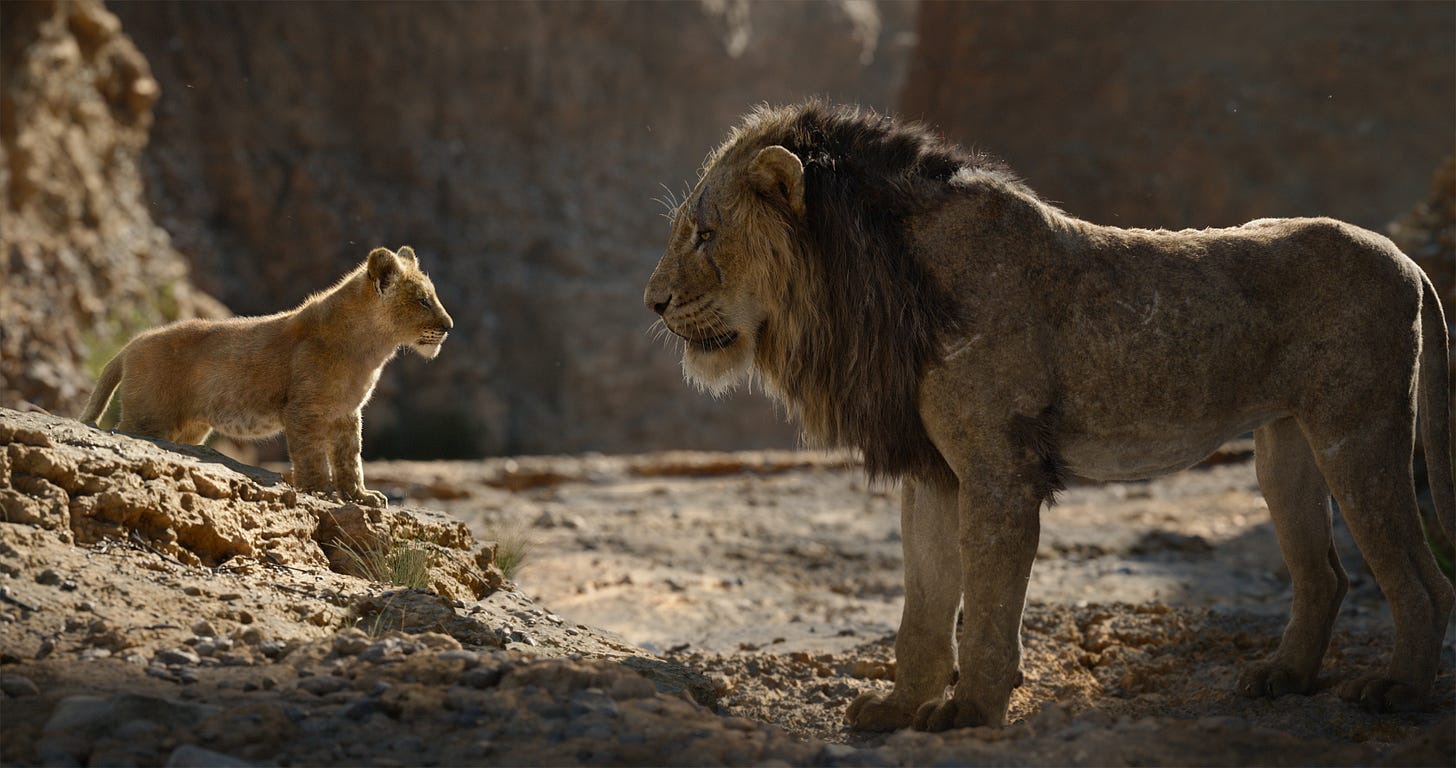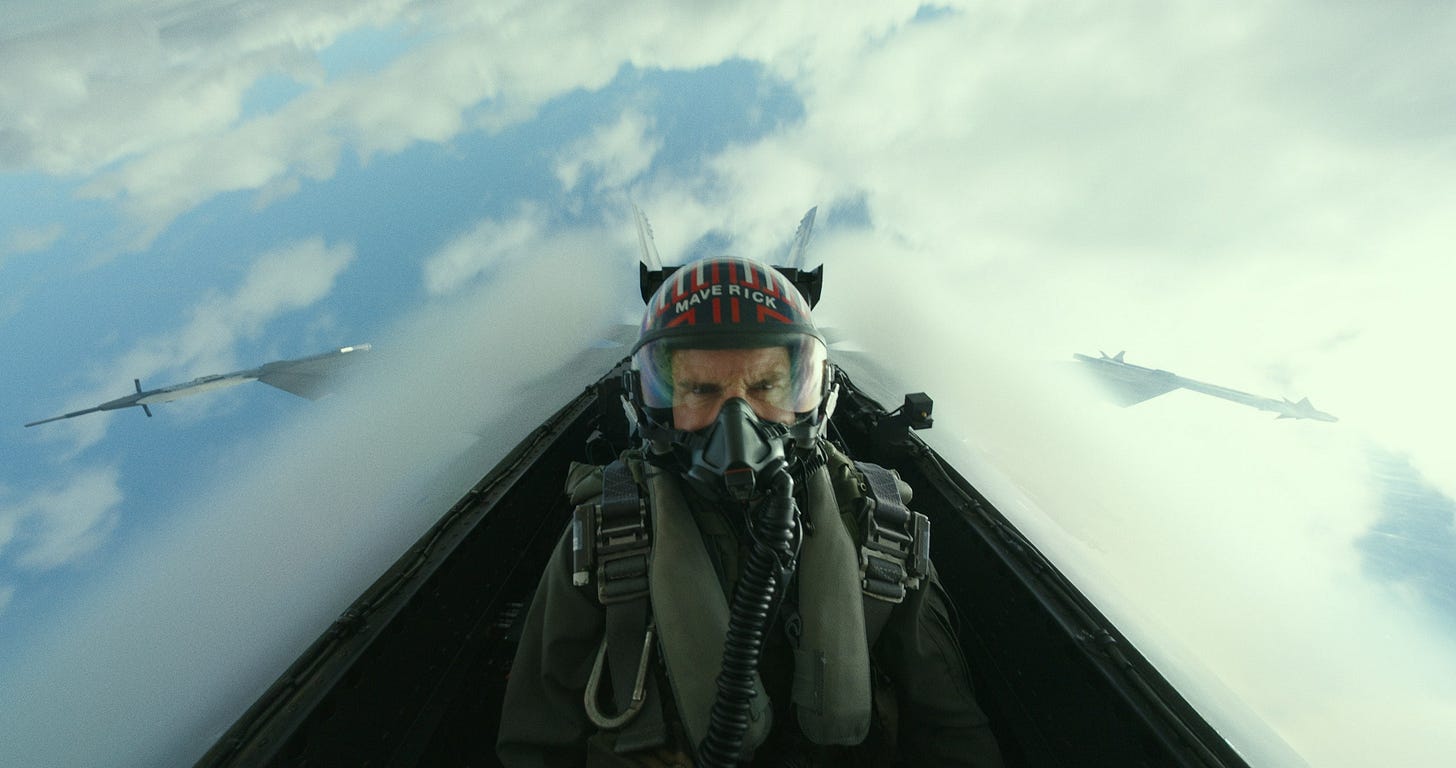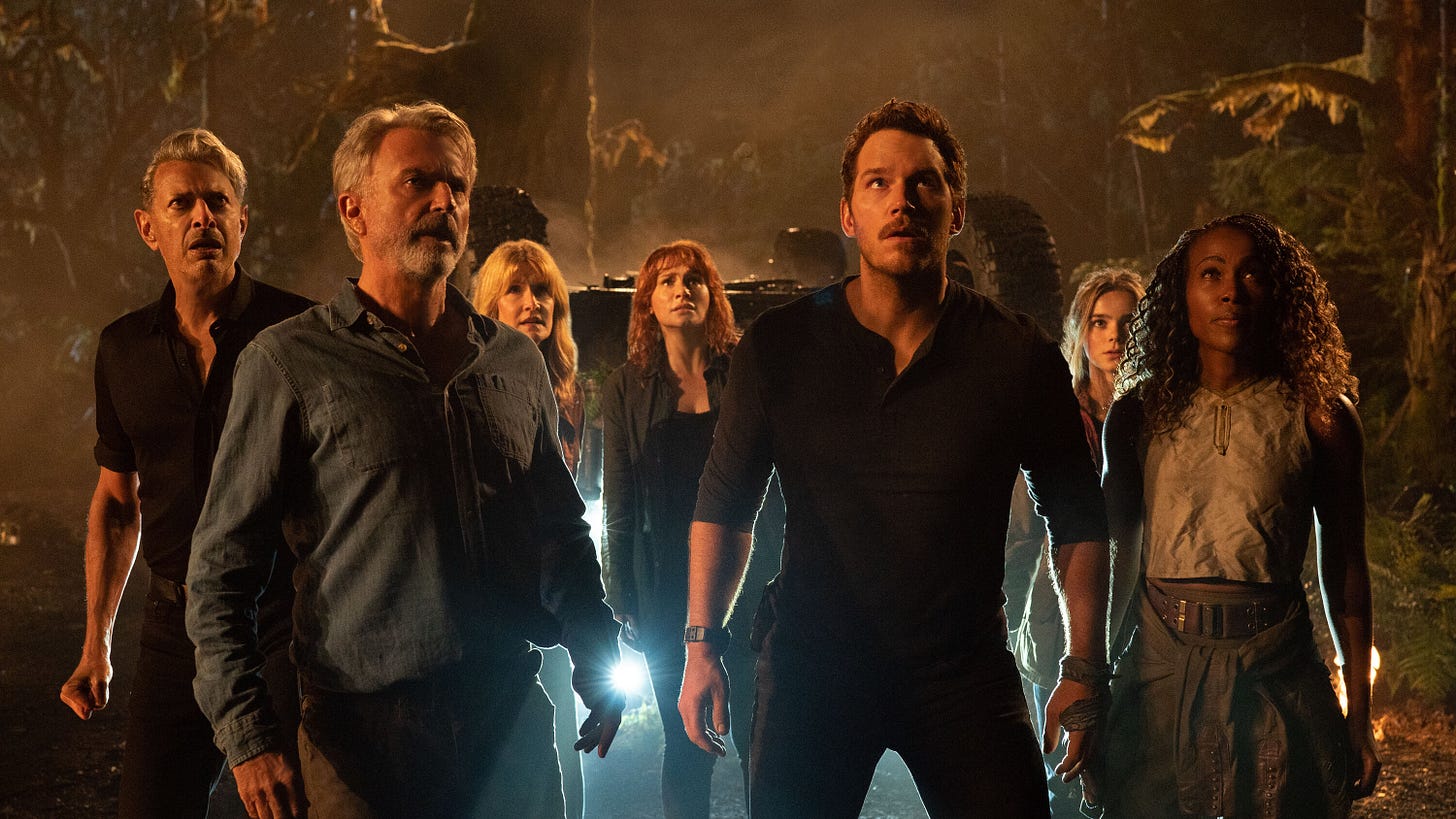The Desperation of Nostalgia Sequels
Stranger Things taught us that you can wrap nostalgia in an inspired vision. Everyone else forgot that.
Disney needs to be stopped. The corporation that’s one acquisition away from ruling Hollywood has started, encouraged, popularized, and now spread the most cynical trend in filmmaking today. Not cynical in that they won’t put smiles on the faces of millions, but cynical in that they will receive all of the attention they want without putting in the effort to earn it. Proven time and time again, their laziness will be rewarded with a barrage of YouTube headlines celebrating them and a warm seat in the billion dollar club. The new craze is one that needs to reach its expiration date shortly, and can be boiled down to this.
“Hey, I know that guy!”
Disney’s devotion to building their brand on the conceit of old memories is astounding, and one that’s already losing the trust of viewers. Instead of building new franchises for the next generation, they keep playing it safe by relying on the success of what came before. The most egregious demonstrations of this are the live-action remakes, which unfortunately show no sign of slowing down. Their purpose is one of novelty, one-time theatrical experiences that are interesting for fans of the original. Nobody still talks about (or even liked) the Lion King remake, but it grossed $1.65 billion because every fan wanted to see the film with a fresh makeover. Instances like Aladdin and The Jungle Book showed the potential to inject life into these, but most of the rest have no reason for existing beyond profit. Your memories are used to manipulate you, and the creative integrity of those are tricking you into thinking the recreations have an ounce of that imagination.
Not to say there aren’t exceptions, many that justified the popularity of this ever-evolving pattern. Spider-Man: No Way Home was feared to be the epitome of mashing IPs together to remember past characters, but proved to be the example of how to justify crossovers to mean more than fan-service. All of the villains and Spider-Men contributed to Peter’s emotional journey and realize what being a hero means, no matter how many sacrifices he must make to save people. Green Goblin’s gave Peter a true nemesis needed for the origin story he never received, while Tobey Maguire and Andrew Garfield’s travel through the multiverse paid allowed us to see them older and in the mentorship role this iteration of Spidey needed. Unfortunately, fans have let that take over their expectations of the genre, to the point that cameos are only what people want from the MCU. Doctor Strange in the Multiverse of Madness’s major disappointment from fans was the lack of familiar faces that appeared, which turned out to be the least of its problems.
The notable outlier among this batch of films digging up the past is this year’s Top Gun: Maverick, the prime example of how to do long-delayed sequels right. Racking up an astronomical gross that exceeded everyone’s expectations, Tom Cruise’s return to theaters was beloved by audiences and critics alike. Maverick utilized enough recognizable needle-drops (how can anyone get sick of Danger Zone?) and returning cast members to pay tribute to the predecessor’s legacy, but crafted a heartfelt story surrounding it paired with energetic plane sequences that were exciting because they were…real. It was a tribute to the magic of old-school blockbusters, and Joseph Kosinski matched with Cruise’s magnetism replicated the authenticity of the past era. It improved on what came before by updating it for the modern time, understanding that fans deserve more than superficial references to what came before.
The proper continuations of franchises have exemplified they can earn their right to carry on what came before. Sequels, reboots, remakes…all of them can implement just as much inventiveness to take iconic narratives in improved directions. Creed took a premise that seemed horrible to every fan, and crafted the second best installment in the Rocky franchise with a powerful story about the enduring legacy of Apollo Creed’s title (featuring Rocky in his most vulnerable state yet, backed up by a career-best performance from Stallone). Much like Maverick, it progressed characters seen for decades into a current setting that’s just as resonant. Similarly, the revivals of classic horror franchises have been able to mine original material using the iconic figures of the genre. Halloween, Scream, and Candyman are just some entries that took the time to revitalize their scares (while others like Black Christmas and Texas Chainsaw Massacre flailed around in the spotlight before quietly returning to their graves.
But alas, others have failed to comprehend their successes, and it isn’t on;y Disney. Jurassic World: Dominion obviously thought their half-baked script would be saved by the return of legacy actors forced to use their remaining influence to salvage their scenes. The Matrix Resurrections was a shallow attempt to recapture the spark of the first, retaining hints of its creativity but rehashing the basic plot outlines. Do you want to see Independence Day 20 years later? It’ll suck, but Jeff Goldblum will still be Jeff Goldblum! A new Terminator movie? No, hear me out…this one will have Arnold Schwarzenegger and Linda Hamilton! And they’ll say “I’ll be back”! Are you excited for 80-year-old Harrison Ford breaking out his whip and stepping back into the role of Indiana Jones next year? Didn’t work out well last time, but who knows? How about Michael Keaton returning as Batman in The Flash to say some of his most recognizable lines? He’ll be older, but might still do some of what he did before, ya know! How cool is that? Ghostbusters, Home Alone, Harry Potter, Rambo, Buzz Lightyear—don’t you remember what you used to love? Please remember.
No, Hollywood hasn’t run out of ideas. Far more original films come out each year than these nostalgia ploys do. But, the top grossers released by the prominent studios frequently fall back on trying to restore the status quo by copying what came before. The film industry all boils down to profits, and most of the examples highlighted above raked in the money desired. I’m just asking to focus less on what properties can be sequeled and more on how to sequel them properly. For every Mad Max: Fury Road, you get whatever the misguided stroll down memory lane the Star Wars sequel trilogy boiled down to. These are clogging up the market, resulting in less titles to be passed down to the next generation. The value of having Beverly Hills Cop back will be as enticing and immediately forgotten as the return of Coming To America (yeah, I don’t remember that either). When Hollywood refuses to improve and wants to merely double down on the strategy of reviving the dead, you’ve gone way past the point of ingenuity. Let’s at least call you out for the desperation you’ve actually arrived at.
More from Almost A Critic
Hollywood may have finally rediscovered the lost art of satire
Why are the most popular franchises so afraid to kill their characters?
By trying too much, the MCU is doing too little for audiences
Has Hollywood Forgotten How To Make Action Movies?
Nope is just as puzzling as its title, and the answer is the best and worst of Jordan Peele
The Gray Man is Netflix perfecting the formula to underwhelm an audience
‘Thor: Love and Thunder’ doubles the Thor, with only half the success of ‘Ragnarok’



